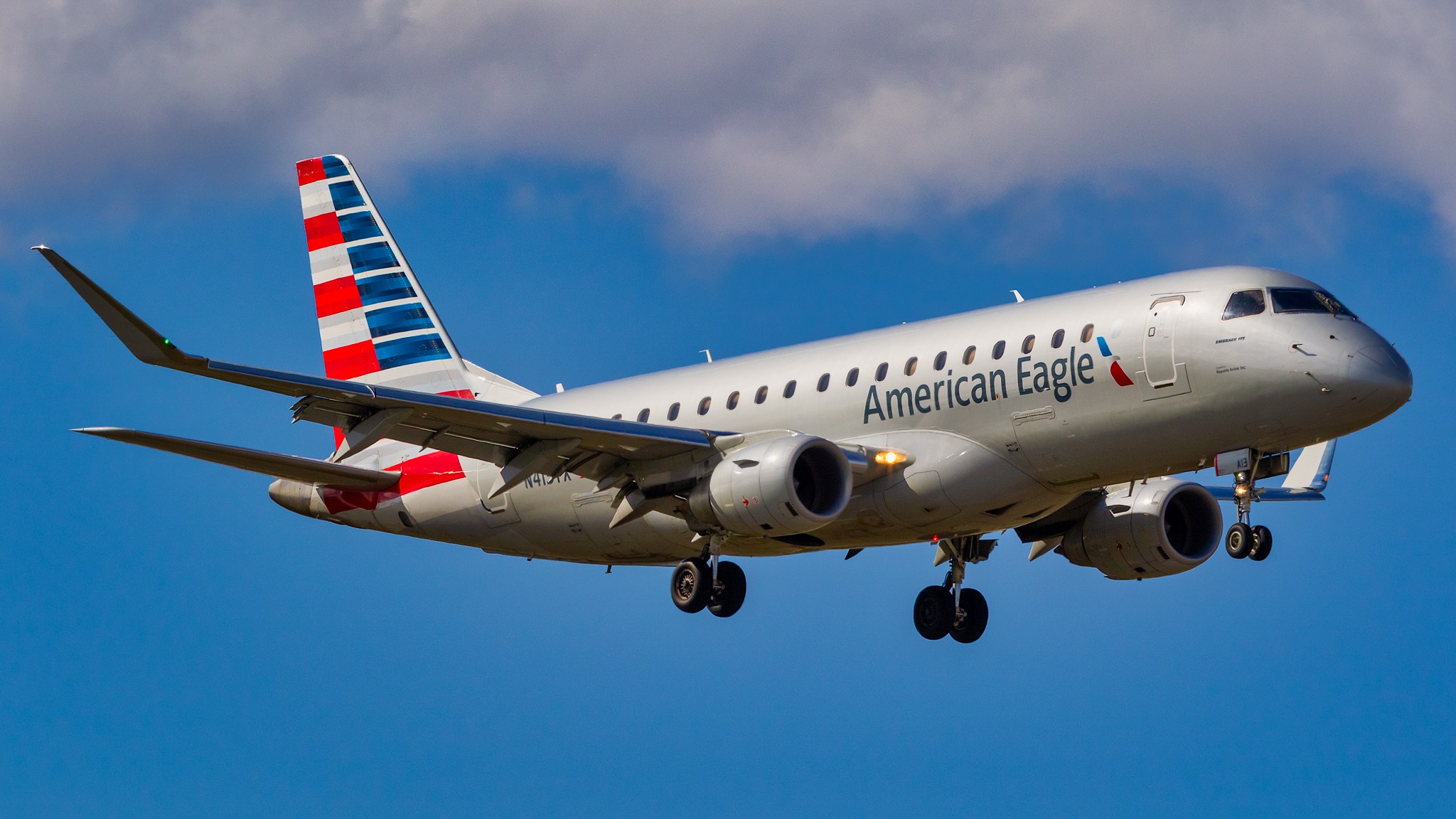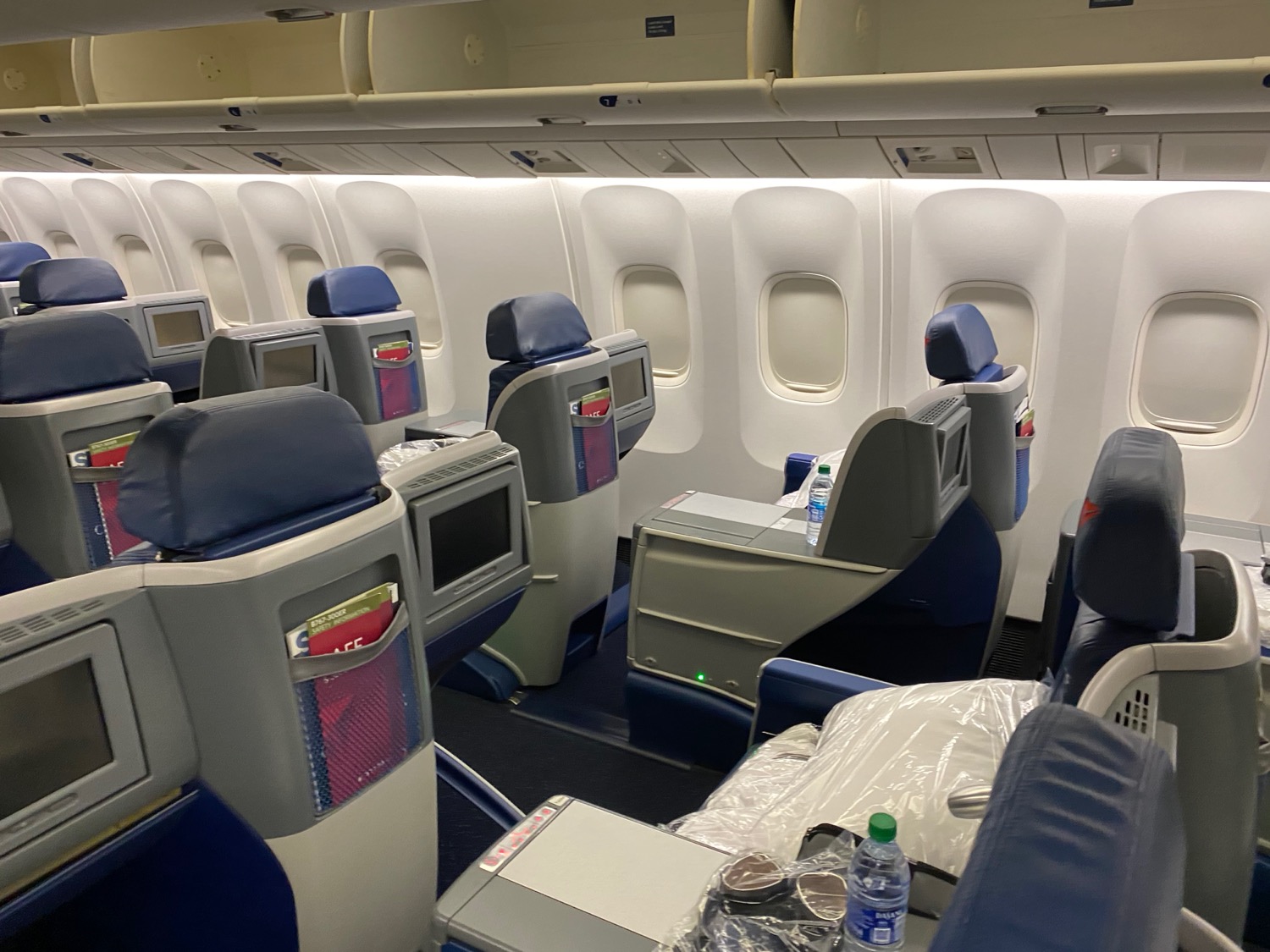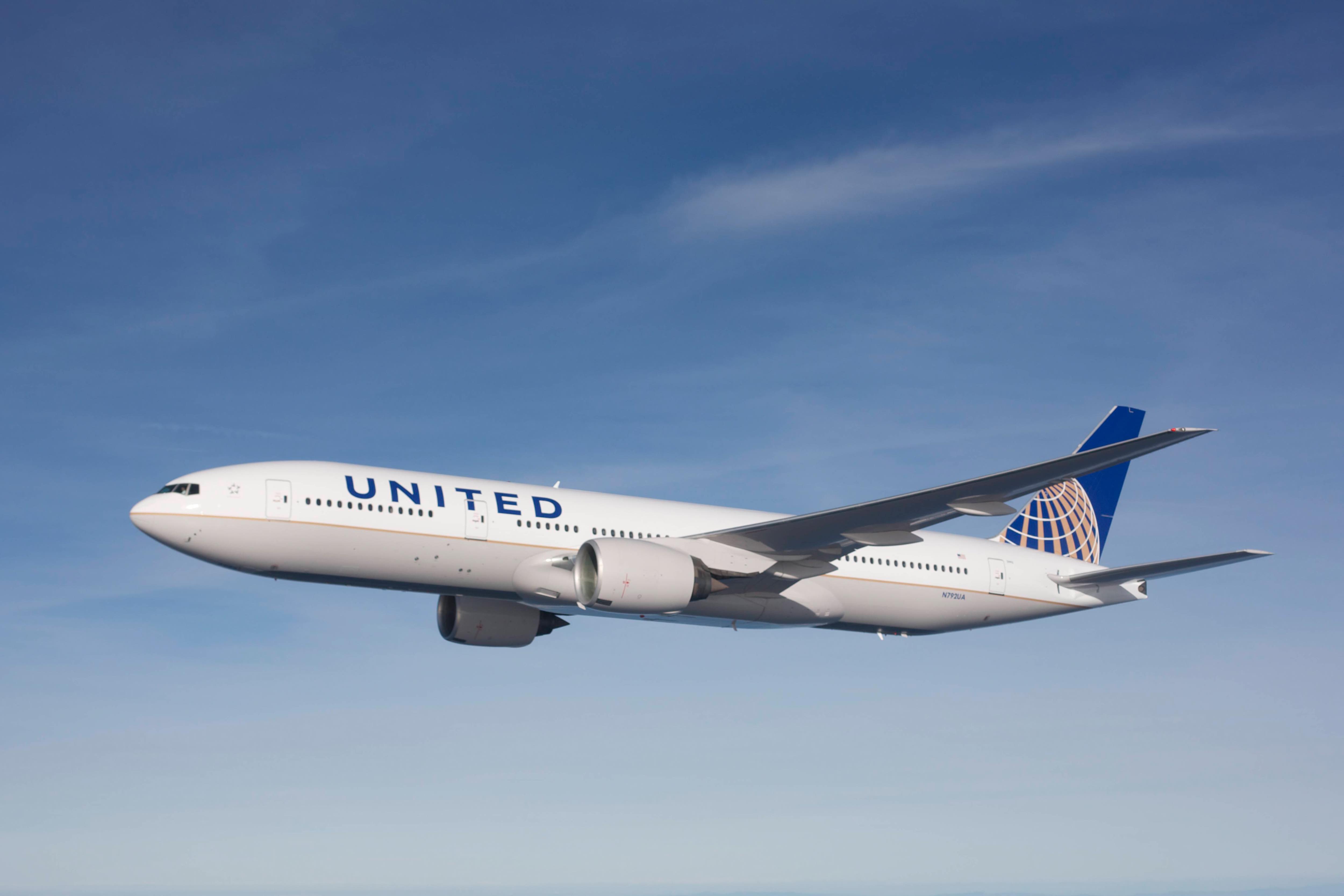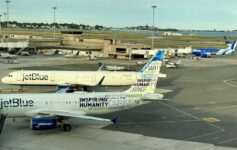Following unwanted management changes at United and unrequited management changes at American, I am re-examining my airline loyalty. Here are the arguments for and against holding loyalty status.
If you are considering booking travel or signing up for a new credit card please click here. Both support LiveAndLetsFly.com.
If you haven’t followed us on Facebook or Instagram, add us today.
For and Against
With the ascension of Scott Kirby to CEO of United Airlines, I am re-evaluating my airline loyalty for the third time in three years and wondering if it is all worth the trouble any more. Sriram Srinivasan writes the Road More Traveled blog at TravelCodex and we both formerly wrote for Upgrd.com. He has long gone “free agent” despite being located in Dallas, home to American Airlines and Southwest with plenty of service on other carriers too.
I asked him to provide counterpoints to my arguments for airline loyalty as I decide if it’s still for me. I appreciate his timely response and helpfulness, he’s a thoughtful travel writer and if you don’t already read his work, you should add him to your blogroll.
Program Changes
For
Program changes hurt loyal members but the benefits of consolidating flights with one carrier still make sense. The freedom to change my flights, add bags, get on and off the plane quickly and sit in a reasonably comfortable seat are all better than buying these benefits piecemeal every time I fly. If a guest chooses to change their flight on the same day, even Southwest will let elites do so for free. For frequent flyers, that’s a very valuable benefit to have.
Against
I think you’re looking at this from the perspective of someone who flies enough to earn mid-tier (i.e. AAdvantage Platinum) or higher status, but it’s not compelling if you fall in that 25k-50k/year band where you only earn low-level status. You’ve argued this a few times in your posts, but none of the airlines provides extra legroom seating for free to their lowest level elites anymore. AA was the last to offer a discount but they stopped this a year or two ago. Yes, status entitles you to upgrades to F, but they hardly ever clear, because the airlines aggressively peddle paid upgrades at a reasonable cost. You can also get your free bag just by paying $95 a year for the co-branded credit card. The SDC fee waiver is probably the most compelling benefit, though it depends on how much you use it. I think a surprisingly large number of flyers would find they pay less by taking the lowest cost option, getting a credit card or two, and just paying the fees when necessary as opposed to deliberately overpaying to maintain status.

Loyalty Points Consolidation
For
It makes sense to have diversity in miles and points accounts but buying tickets on whichever airline is cheapest or most convenient on the day doesn’t return a value for money spent. Even if the dollar amount is overall lower over the course of a year, buying all of the extras that status brings, it requires more from the flyer to manage, more to know about each carrier and their intricacies and delivers less as points are accumulated in smaller amounts spread over a variety of programs.
Against

Routes
For
The four cities I fly most often for work are Houston, Denver, Charlotte and Dallas. Based in Pittsburgh, I have two obvious options for direct flights from carriers, United or American who have hubs in 50% of those cities and direct flights. For what it’s worth, Southwest flies to Hobby, Denver and Dallas Love from Pittsburgh as well but flight times are far more limited and costs tend to be much higher as I often cannot plan for business trips very far in the future.
If I book the cheapest ticket for every trip I would almost certainly find myself trading direct flights for inconvenient routes with connections. Even if only shopping direct routes, Southwest or Spirit will never compete on the frequency and Southwest airports are sometimes inconvenient (Hobby in particular.)

Against
Fair enough, but what about for frequent flyers who aren’t flying to hubs and/or don’t live in one? If you end up getting assigned to clients in Midland, Tulsa, and Omaha instead, you’re connecting no matter what, so doesn’t it make more sense to go with the lowest-cost option?
There’s No Perfect Program, Just Pick One
For
- American’s operation is one of the worst in the business.
- United continues to ratchet up requirements while reducing benefits.
- Delta has the least possible trustworthy mileage program with the best operation and worst hubs (for my travel patterns),
- Southwest has limitations to its equipment, loyalty program and its route network.
- Spirit has a limited network and no loyalty program elite level, their miles expire nearly immediately.
- Alaska has a great program but useless for my business travel needs.
- JetBlue has a great product but a difficult route network for me (only direct flight is to Boston and just twice daily), limited network, limited loyalty program.
Against
This is probably the most compelling argument in your arsenal – “they all suck so just pick one program that works for you”. My counterargument there is that remaining loyal in the face of all this terribleness just encourages the airlines to keep doing what they’re doing. Since you and Matthew plan to remain loyal to United, what incentive do they have to stop devaluing their program? Since Lucky intends to remain loyal to American, what incentive do they have to improve their operations? Etc., etc. They know their frequent flyers aren’t willing to inconvenience themselves to switch, so they can keep bottom-feeding because they know you’ll just keep coming back.

Conclusion
I remain open to reconsidering my loyalty to United, and Sriram raises some excellent points. My view is personal (routes) and specific to my situation (routes I fly, frequency and status level attained) but he’s right that those who fly less than 50,000 miles/year really should forget about loyalty to one carrier – that is, at least they shouldn’t chase it.
What do you think? Are you loyal now to one carrier or are you a free agent? Will this change due either to new requirements for status or management changes? Is he right or am I? Both?




Not loyal to one carrier here, but loyal to StarAlliance and Skyteam, both top tier.
OW is an irrelevant alliance and I rarely fly them.
I used to have loyalty but now I just have slight preferences for 5 airlines. The benefits they offer are not much.
I’m one of the lucky ones that Alaska Mileage plan can work for. Love the fast mileage accruals and being able to redeem on some great airlines and products, although admittedly fewer partners than a few years ago. When the airline first integrated with Virgin America, that product was a treat to travel on. Now there are fewer opportunities for that.
The one obvious problem with Alaska is the network. At least a few times a year I’m flying another carrier in order to get to my destination. Those are times I do consider AA or UA.
One program I was a member of for years was Delta Sky Miles. Loved the airline, but felt the program was not worth any effort.
When Alaska decoupled elite benefits from cheap fares, I went free agent. Because my home airport is SEA I will still end up flying them, but I am in the 25k-50k zone on non-award travel, where it doesn’t make sense to do mileage runs, or pay extra for loyalty (in fact I may just cut back below 25k a year). Truth be told, I’ve been taking some legacy Basic Economy/Spirit/EasyJet trips… and I find it’s easier and cheaper to get a nice EasyJet experience than one on BA (costs more for exit row and bags).
I can realistically use a combination of Alaska, Delta, Southwest and Spirit for domestic travel, and combinations of Alaska and Avianca miles or cheap J fares (plus LCC trips for short flights) and have a reasonable experience (I don’t value F on 1-3 hour flights very much). I pack light (I can easily do 3-4 days of clothes in a under-seat bag). As such, the airline trend to jack up prices on flights in order for elites to use upgrade benefits/extra legroom/bags isn’t very compelling for me.
I originally was going to write a comment saying its not worth it for the vast majority of US domestic travel, but in reality I think its more of a 60/40 thing in the other direction because of where the population all is.
If you live in Pittsburgh, or any other non hub city, unless your flying is always to smaller cities that will require connecting then the vast majority of the time the only, overwhelming choice should be whether you are happy to pay the premium there is for flying non stop and not the loyalty. And unless your travel is significantly dominated by flying to places that are one airlines’ hubs then going in hard on one airline and adding loads of connections isn’t worth it unless you really need the cheaper fares (on average)
If you live in a hub city with only one airline then your choice is essentially the same, the time and price factor should dominate.
But if you live somewhere with competing hub operations, live outside but are always flying to one of these places, then unless one airline is routinely far higher for the routes you fly then the loyalty program absolutely should make a difference still.
So that means, Chicago, LA, Boston, and Seattle, and if the airports in these places aren’t vastly more convenient for your destination New York, Houston, Dallas, and Washington DC.
There will be a lotttt of travellers who’s travel is mostly to all O/D at one of those markets.
Excellent analysis.
Honestly, I’ve been pretty happy with AA lately. I’m sure I’d hate the airline if I wasn’t an EXP, but they really haven’t given me anything to complain about lately. My loyalty seems to finally be paying dividends.
Flying them on an international business class award ticket today, right now, appallingly terrible. The equipment was fine, the flight took off on time and arrived early, it was airplane food, but so what? Ground services in Charlotte are terrible, I couldn’t get an employee to care in this airport right now down to the smallest details like the baggage carousel, where they listed just one flight of three that arrived at different claim stations. I am educating the staff on what’s permitted due the ticket, one agent said, “the taxes could be different” in regards to flying a domestic segment one-way at 8pm instead of 10pm. Obviously false, the agent refused to look it up or even try, insisted I call in. I did so in front of her which confirmed that, of course, the change was possible and, of course, there is no difference in the amount of taxes paid on the same route for a two-hour time difference. Same issue at the gates. In the lounge, they have dips (gucamole, salsa, artichoke) but no pita chips due to a supplier. Ok, fair enough, until I walk over to a custom guacamole station where they have bags of chips available and stacked. The “give-a-damn” has sailed at American Airlines.
It’s sad to say, but it’s like they need a Dr. Dao incident to wake them all up.
Precisely my experience. The seats are fine. Once in a while the flights are even on time.
But the people. Ooohhh the people. Check-in staff is super disgusting, know nothing, and seem only well trained in barking. Crew onboard managed to drop half of the breakfast on the floor before it was served and suggested I pick it up myself and eat it.
Luggage of course got lost for a couple of days.
Neverrrrrr again that bloody airline. It is far far worse than Biman.
I have Star alliance for life and I make One world every two years with mininum effort. I am a free agent aside from that.
I do not root for any carrier except Turkish and Thai as they tend to buck the system. My “loyalty ” left in 2012 when all carriers fell into place with the world wide FAA CAA Brussels parrots cockpit ban. Until then it was based on finding nice pilots.
Besides, food in the lounges is becoming worse and worse. The exception LH FIrst, Turkish business and SQ first. Qatar has become so bad.
The big wrinkle is that United just screwed most of their customers with the latest change of removing miles from status qualification.
So honestly unless you’re one of the few people who flies in expensive seats very often, you’re screwed on united. You definitely don’t want to be flying super long hauls for under $1000 or you’ll basically never make status.
The only thing that makes long haul flying bearable is status, so finding the least terrible program for your cities and sticking to it is almost essential in those cases.
Don’t ignore the partner changes. I have said it before and I will say it again. If you take one international trip annually you will probably qualify for less actual dollars spent than you did last year before that was an option.
But as I have stated before, requiring the miles aspect if you have met the money part is silly and makes top status available solely for those who fly long haul. I had a boss who was on the road every week, sometimes two or three stops in the same week. He’d qualify for Platinum Pro with about $30,000 in spend (nearly enough for Concierge Key in some markets) and 95,000 miles flown. He was based in Dallas. I mentioned to him that he should just do a quick mileage run, maybe roundtrip to Dublin over a weekend. He stated plainly that he doesn’t have the time and the last thing he wants to do is step foot on another airplane after spending 50 weeks on them. Fair enough. But how does it make sense for him to miss upgrades because he only flies 95,000 miles instead of the extra 5,000 while spending twice as much and perhaps being physically on airplanes more often than someone who flies long haul cheap international tickets.
The problem is that we all see it from our own lens. If you were in his position I think you’d probably think “mileage be damned.”
I’m like your boss. More like 30 weeks of travel, but all domestic (save one Korea trip every year) and based out of Denver so both coasts are reasonably close.
I would struggle to hit Platinum and be spending $16K per year (mostly aided by expensive last minute flights due to the nature of my work).
Now that my company has changed ownership I can buy business class for the Korea trip so hitting $18K will be easy and I don’t have to play games taking longer connecting routes, via SDC, just to rack up miles.
There are three main points of status:
1) Make the flying you already plan on doing less stressful / more pleasurable
2) Save money on various fees airlines charge to non-status customers
3) Earn free flights
Also:
1) a huge amount of flying and traveling is done by people not paying directly for their own tickets. Almost all Boarding Area blogs seem to overlook this.
2) Most travel and points redemptions are domestic
For business travelers that are being reimbursed (which is the typical business traveler) not going for status is pretty irrational. I live in a competitive market (New York), where three legacy carriers and Jet Blue all compete; flights often cost the same and are available non-stop to most markets. I have chosen Delta as my airline due to schedule, operations, and, gasp, miles (it is secretly easier to redeem to Europe in Delta One these days than it is on American metal). Ignoring status would result in me earning fewer points and costing my company money (in bag fees, change fees and other fees). And also accruing points via loyalty can fly the entire family to Colorado/Utah for ski season, Florida for a beach vacation, etc.